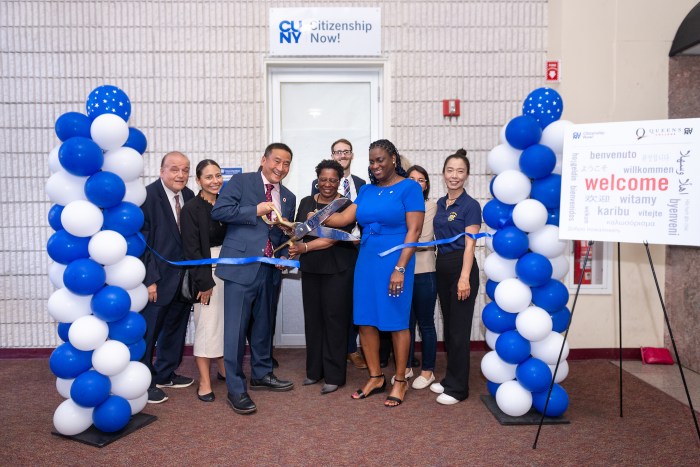By Gabriel Rom
Two trade groups representing Chinese and Korean nail salons throughout the city have sued the Cuomo administration over a new requirement that they purchase wage-bonds as insurance for any unpaid wages. The suit follows a one-day shutdown by the city’s salon shops, including a number along Jamaica Avenue, to protest what they consider an overly complex and hastily applied regulatory regime.
The Korean American Nail Salon Association and the Chinese Nail Salon Association of East America argue that the wage-bond mandate and its effects on the nail salon industry is poorly understood and may have unintended consequences so severe that the legislation borders on discrimination, according to a letter that Michael Yim, one of the lawyers representing both trade groups, sent to the New York State Department of State.
Current regulations “would only have a drastic, disproportionate, and discriminatory impact on Asian immigrant business owners, especially Asian women owners,” the letter said.
State Assemblyman Ron Kim (D-Flushing), who helped draft the initial regulations for the salon industry with the governor, has in recent weeks become one of the more public critics of the wage-bond mandate. There are a number of nail salons in his district.
Cuomo pushed the legislation unusually quickly, ordering a bevy of emergency regulations in the days and weeks after a New York Times article, published in May, called attention to widespread abuse in the industry.
That haste, Kim says, is why he is pushing back on the wage-bond provision now.
“Everyone just wants the truth to come out as to how the Department of Financial Services determined that the wage-bond product was readily available and why the administration believes the bond industry is the proper way to protect workers from wage theft.”
Kim explained that the process in which bond companies underwrite risk is opaque and that many Asian-American immigrants do not have significant assets, so the bond industry is not readily accessible to them.
“We encourage people to come to this country and take risks, but this bond mandate undermines those efforts,” he said.
Representatives from the Cuomo administration have been slightly befuddled at the intense opposition.
“The overwhelming majority of nail salon owners who have made a good faith effort to secure a wage-bond have been able to do so,” said Frank Sobrino, a spokesman for Cuomo. Of 694 wage-bond applications processed through the end of August, 98 percent were approved, he added. Last month, the state’s multi-agency task force inspected 182 salons and found 901 violations, including failure to pay minimum wage or overtime at 43 percent of the locations.
Kim retorted that such figures reflect less than 1 percent of what he said were the state’s more than 30,000 “beauty enhancement” businesses, and as such, should not be seen as an indication of the widespread availability of wage-bonds.
Representatives from the wage-bond industry see the brewing legal conflict as much ado about nothing, and their position not as one of selective enforcement but stemming from basic financial realities and risk mitigation.
“The process is basically simple,” said Josh Kayser, founder and CEO of Suret
He added, “We will almost always get someone approved, but the premium is going to be determined by how much quality information the salon owners are willing to provide us.”
(Clarifying governor ordered regulations in the days and weeks following the New York Times article.)
Reach reporter Gabriel Rom by e-mail at grom@

































